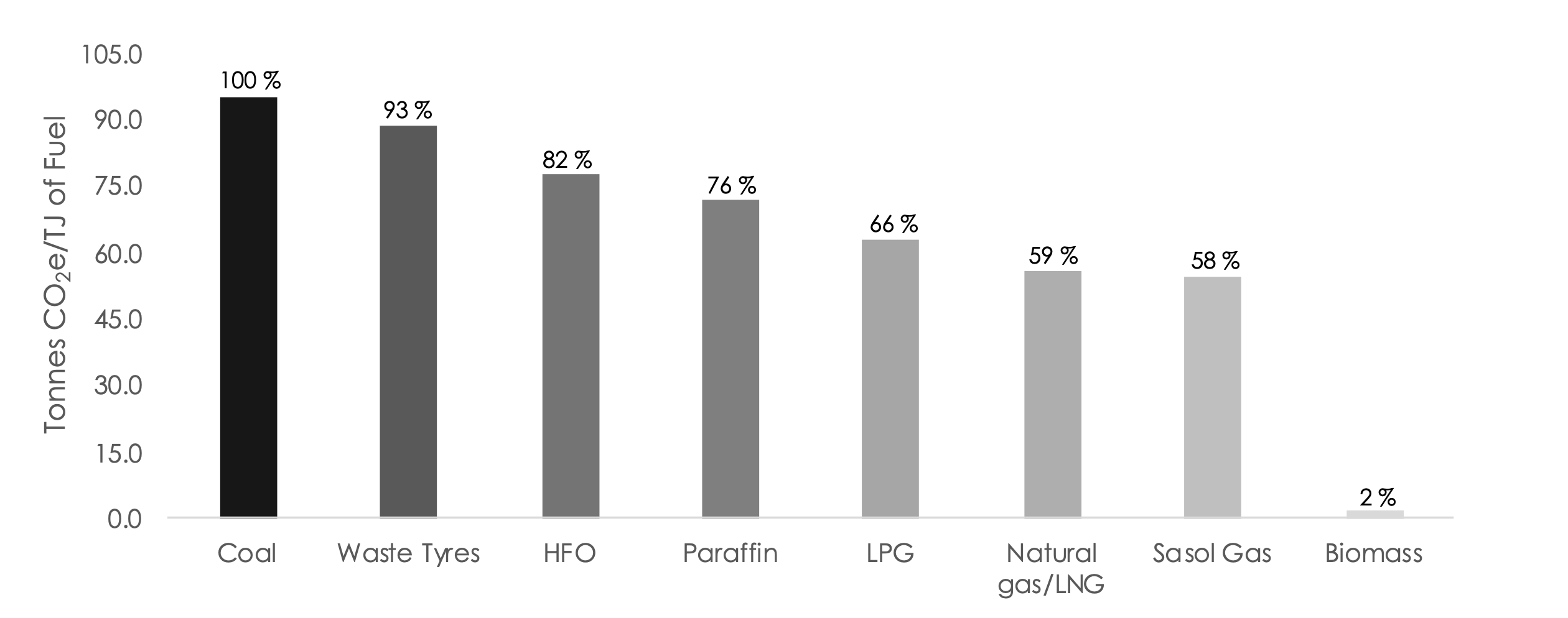Will a Fuel Switch Reduce my Carbon Tax – and by how Much?


It is clear that coal has the worst effect on global warming.
Gaseous fuels have a lesser effect as they typically consist of short hydrocarbon chains (CnH2n+2). The shorter the chain length (i.e. a low “n” value in the formula: CnH2n+2), the higher the ratio of hydrogen to carbon and the lower the carbon footprint.
While biomass (which includes wood, bagasse, sunflower husks, etc.) produces the least GHGs per unit of energy, it is not completely carbon neutral. The CO2 emissions from the combustion of biomass are zero because the CO2 that is released during combustion is absorbed during the growth of the plant. However, there remain CH4 and N2O emissions during the combustion of biomass. Because CO2e is the sum of CO2, CH4 and N2O (after being adjusted for GWPs) there remains a small CO2e value when combusting biomass.
While switching to a fuel other than coal may reduce the carbon tax that is payable, there are many other ways to reduce carbon tax and businesses require long term energy strategies. Our team of experienced chemical engineers would love to help you, so please get in touch.
